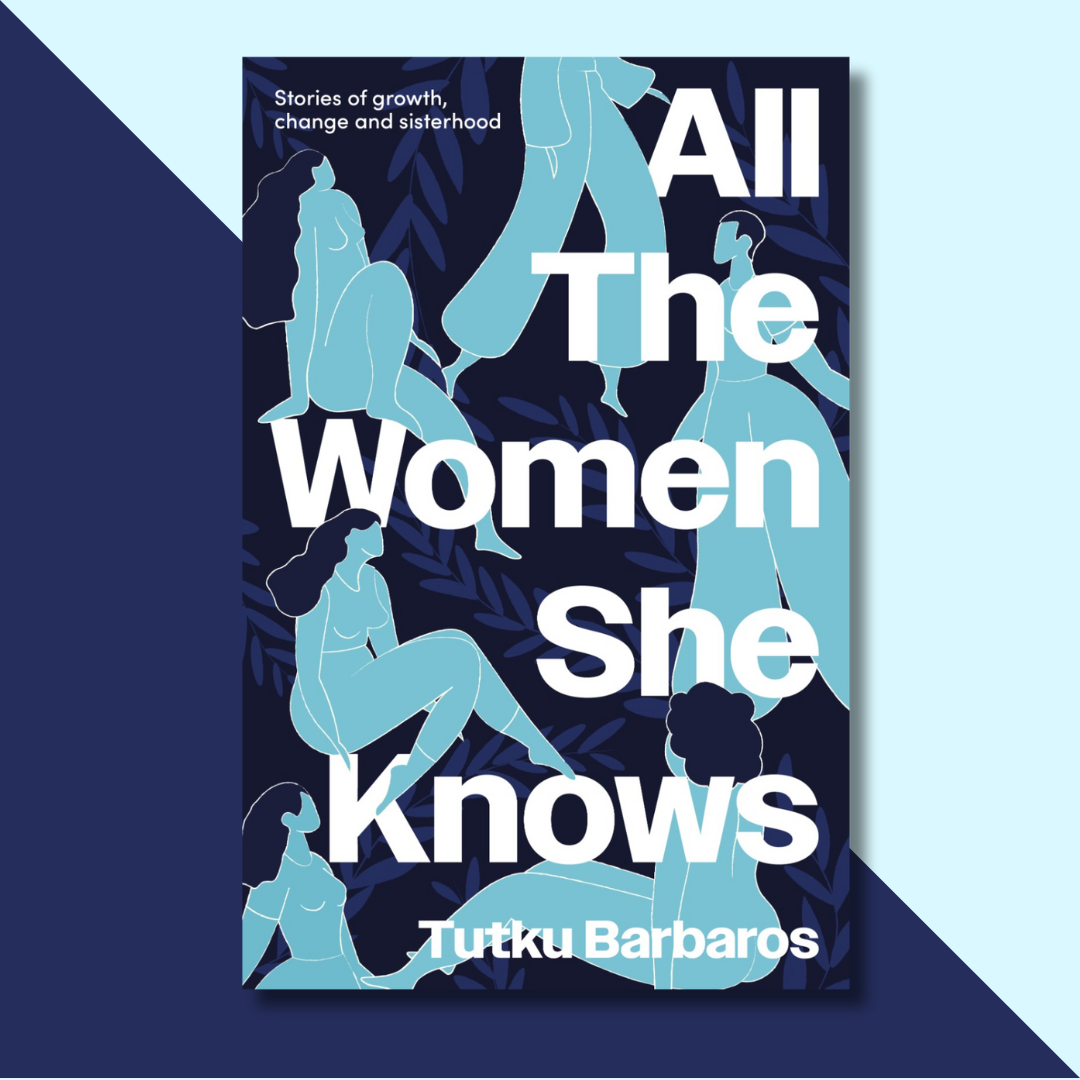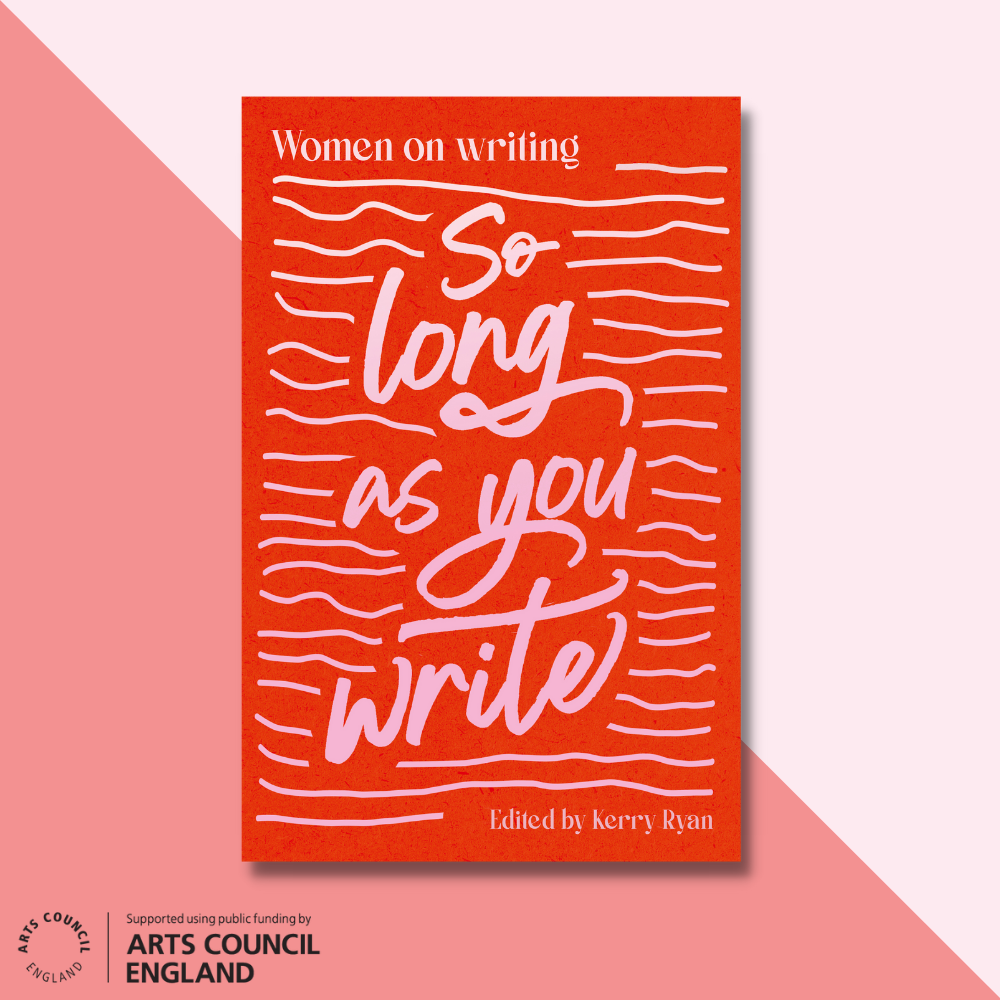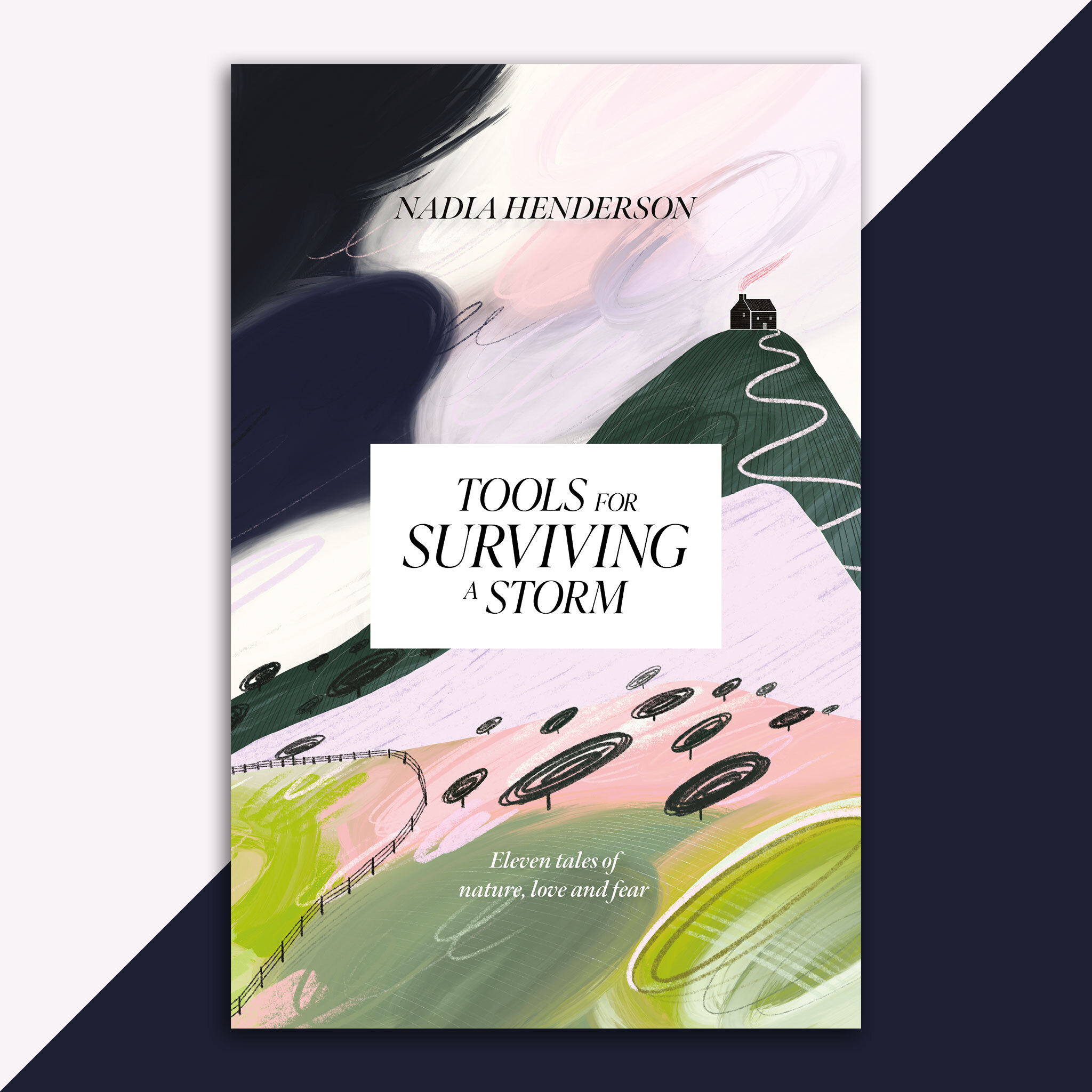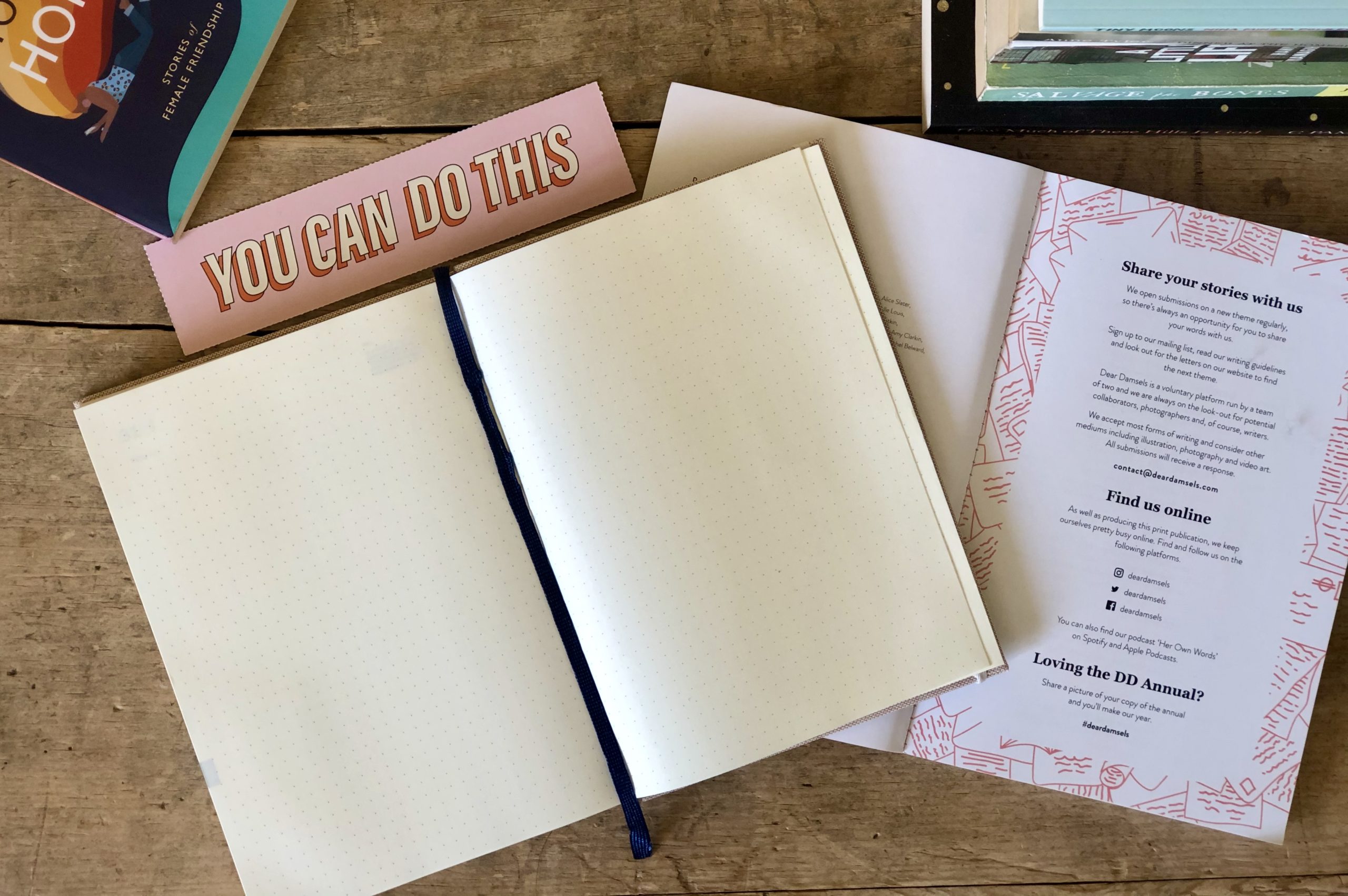BECOMING SEA | In Emma Hulance’s post-apocalyptic world, women find out they can breath beneath the water.
by Emma Hulance
The dawn light was cold and magnetic. Early beams of sun danced on rockpools, lighting them like campfires. Tucked below the forested coastline, the cove was a rare treasure away from the obsolete land beyond. There were many such inlays along the miles of beach that stretched further north than Ula had ever been but this one, being the most southernly of them all, was always deserted. The tirade of debris between forest and open shore that had built up since the troops had moved on made it impossible to get here overland, and the boulders within the bay itself meant the boats that still sailed couldn’t get here either. It was almost as isolated as the times when this part of the earth was covered with snow and ice.
Day after long day Ula came to sit and listen to the sea. To learn it. She listened intently, letting it absorb her attention. She would swim out as deep and she dare and submerge her head, letting the sounds wash through her ears, mind, self. She was able to hold her breath for a while longer each day. Sometimes she could hear voices calling beneath the water; other times it was just one solo melody streaming out in waves and back again, in agony then rapture, rapture then agony, in and out, out then in, depending on the time of day and the season.
Back on land, she clung to the sand, feeling grains work their way through the fabric of the thin cloth she sat on. It was late afternoon now. Her fingers were cold and her face salt-raw, stinging in the briskness of the wind. Clouds lay like whipped butter across the sky; the sky itself was indigo, just at the point of dusk. The tide turned. She saw it in the furthest distance, as if upon reaching as far from shore as it dared, its fear took over – fear of being too far from mother earth at such a beguiling hour.
Across the bay, some of the broken windows in the white huts that still stood popped with light. Others remained shattered and shadowy as they had done for many months now. The darkness of the sea grew. She had stared at it so long that the waves would continue to shift before her eyes for many hours yet. She gathered her bundle of things and marked the spot with a cross of sticks. Tomorrow she would move further along and the next day further still, marking the days until she would be free.
Having scrambled across the wreckage beyond the beach, Ula made her way along what was left of the path to the small camp that had been the only home she’d ever known. It was rare to meet anyone but she always stayed alert in case she did and needed to hide. This evening she was caught unaware. A much older woman stood a few metres ahead. She was close enough for Ula to realise it wasn’t anyone she knew from the camp. A stranger. A stranger whose expression she couldn’t read because she wasn’t good at that. They’d never learned. Not in the camp. There wasn’t a need to. Strangers were all bad and should only be hidden from. But now it was too late. The older woman spoke with a tiny croak:
‘Ello there dear. I heard steps along the path and became all affright. Are you lost?’
Ula replied with a tiny shake of her head and kept her gaze downwards.
‘I been out fer several days now I have. Gathering a little. The younger women have all gone now. It just be us a caring for the little ones in the woods and there be a lot a mouths to feed,’ continued the woman.
Ula looked up in recognition at what the woman was saying.
‘You not be gone though. Ain’t you of an age? It seems you are. Go lady. Be gone. There’s nothing here. Not now. The land is gone fer us. We be the last us old ones. Once the baby ones be old enough we’ll see them gone where their mamas ’ave and that’ll be us done.’
Ula looked back down, gave a tiny nod and walked on, leaving the woman wistfully staring at the now black and starry sky.
“No one knew whether women could always live underwater or whether it was as a result of the mutations that came about following the first waves of attack.”
*
No one knew whether women could always live underwater or whether it was as a result of the mutations that came about following the first waves of attack. Their lungs, they discovered, were better able to conserve air for long periods. Because there was no superfluous extra rib obstructing, perhaps. The first departures were not documented. Some say it was before the wars and supposed those early emigres, sick with the futility of hoping for change, had started their preparations long before the biological assaults and disease and death.
When the destruction of the land itself was humanity’s biggest problem – before mankind turned on itself for the final time – scientists desperately sought places for refuge beyond earth, but never thought of the ocean. It’s true, at one point the seas were as polluted as the land and air but once children began dying from microplastics the waste-dumping peaked and all that was ever heard of the plastic isles was when renegade soldiers began to colonise them as defector centres.
*
Ula arrived back at camp and set about the evening routine: a little broth made from the plants that still grew around the coves (it no longer seemed appropriate to eat fish); a little conversation with some of the other women – who were by now mostly gone mad with grief or boredom. She helped some of them tend and sooth their little ones, then set up her own bed and prepared for the sleeplessness that followed. She stared at the sky and thought about the woman she’d met earlier, her command ‘Go Lady. Be gone’ echoing in her ears. It was the first advice she had, maybe ever, heard. The first time someone had interacted with her plight. She had been bundled along with the rest of the refugee children moving northwards when she could barely walk. They’d always been a group – homogenous. One. With the same problems rather than each their own set of tribulations; their own stories that reached back into the neck of time and life before. Some of the parents had come later but few were reunited as families. The woman had called her ‘Lady’. The word had shocked her. It meant grown up. It meant time to go.
Some of the older girls in the camp had been her friends but once word got around that women were leaping into the sea and surviving, they left. Some had babies even. War babies gotten by accident or worse. As a child, Ula heard girls and women along the shore call to Thetis. Some called loudly, others wailed, some whispered. Thetis: sea-nymph and goddess of water. Thetis: shapeshifter. Flame. Lion. Serpent. Thetis: left her baby son Achilles to return to the water. Thetis: passed swiftly as a dream and leapt into the sea.
*
In ancient times freediving without the aid of mechanical devices was the only possibility, with the exception of the occasional use of reeds and leather breathing bladders. The divers faced the same problems as divers today, such as decompression sickness and blacking out during a breath hold. Freediving was practiced in ancient cultures to gather food, harvest resources such as sponge and pearl, reclaim sunken valuables, and to help aid military campaigns.
*
The next morning, Ula returned to the beach to study the sea again. The water played tauntingly at her feet; sometimes there, sometimes not. Sometimes reaching her, sometimes ebbing away before it did and leaving a shadow the shape of a wobbly egg on the wet sand instead. Today she spent all but one daylight hour swimming, coming up for air only a few times. ‘Go Lady. Be gone’ she incanted to herself. When the sky began to turn indigo again, she found her feet and waded back towards the beach. Then she faltered. Instead of fully surfacing form the water she arched backwards and released her arms from her sides, lifting them up and over, backflipping in the shape of a dolphin. Her heart lurched down towards her throat. The shallow waters licked upwards, hungry to drench her once more. She heaved backwards in one final breach of energy and submerged her head. She had taken her final breath.
Hair spiralled all around her in a cursive script of tresses. Strands gathered under her chin, arms, around her buttocks and upwards again between her legs. She was cocooned in tendrils that soon began to smoother her face. Though, even when her mouth became stuffed with sodden, salty wisps, she found she wasn’t stifled. Her breathing became imperceptibly light, her body pulsing with a tiny force, as if all the air she would ever need was inside of her.
Emma Hulance | @emmahulance
Emma is a new writer who lives in Manchester, United Kingdom. She writes about the experiences of women from working class backgrounds as well as magical realist fiction, exploring all that is weird and wonderful. She also writes a creative travel blog.






